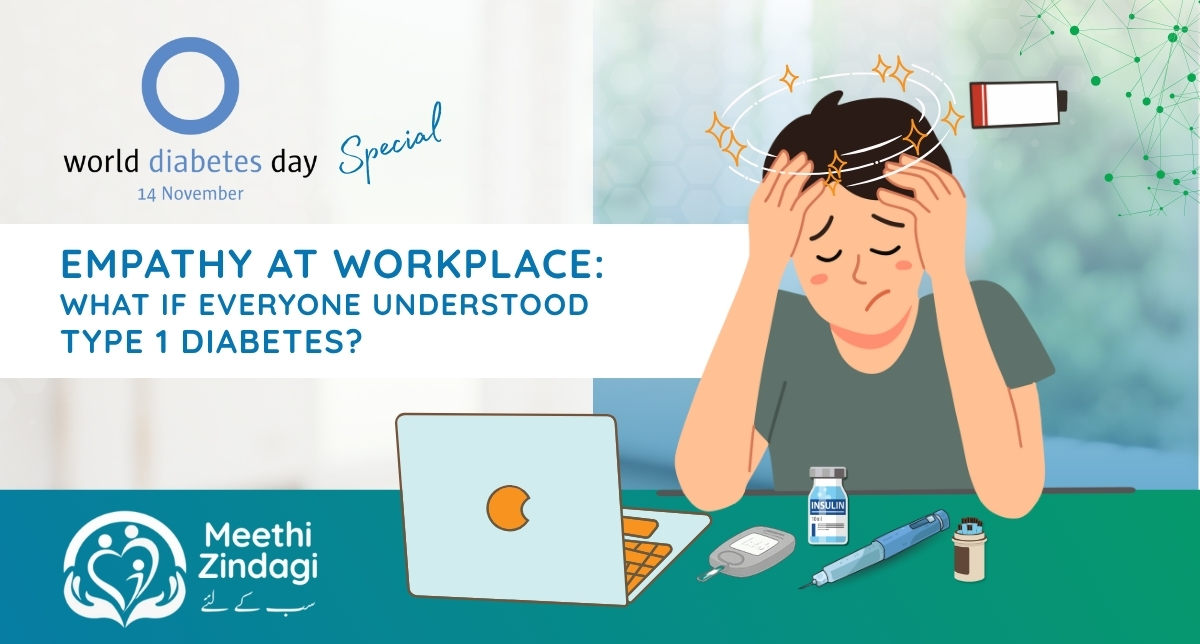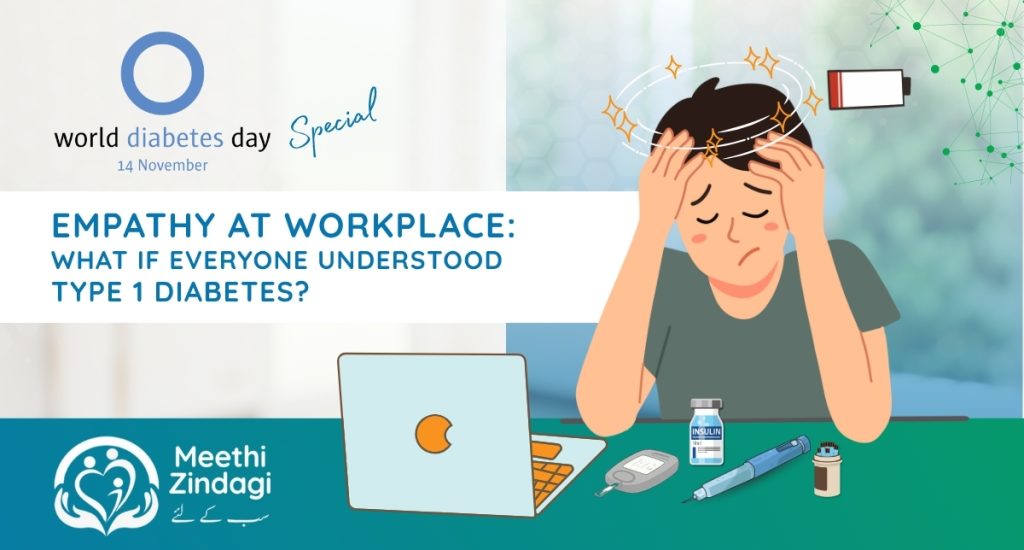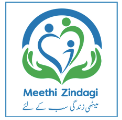Picture this: It’s 11:00 a.m. in the office. You are in the middle of long, back-to-back meetings, the PowerPoint is on slide 27, there’s still time in refreshment, and suddenly your blood glucose levels start dipping.
A person living with type 1 diabetes (T1D) might be discreetly checking their blood glucose levels under the table or feeling their hands tremble as the discussion drags on. But asking for a five-minute pause, for some reason, can feel harder than presenting a whole quarterly report. You know you need a quick snack, but how do you explain to your boss that your packet of biscuits is just as important as the next agenda point?
Then it’s a chai break but your glucose levels are already dipping. Everyone heads towards the tea trolley, chatting about PSL scores and political news, while you quickly take out a juice box from your bag.
Or consider office lunches. Everyone is excited for biryani Friday, but the one living with T1D is calculating how much rice is safe, how much insulin is needed, and whether they will still be alert for the afternoon review meeting. Sometimes they quietly pack from home, and then face comments like, “Tum kabhi enjoy hi nahi karte.” They do enjoy it, but with caution and safety.
This is the everyday workplace story for many people living with type 1 diabetes. Deadlines, presentations, and gossip are part of office life, but so are constant blood glucose monitoring, insulin administration, and unexpected lows. And while both worlds can exist together, the challenge is often the stigma, misunderstanding, silence and judgment around it.
Even the commute to work is a story. Many people with T1D carry their “survival kit” in their bags containing glucometer, insulin, juice, and snacks. In a packed metro bus or carpool, this small kit is a bigger necessity than their laptop bag. But only few people can understand its importance.
Now imagine a different picture. A meeting room where it’s normal to pause if someone says, “I need a minute.” A break room fridge where fruit juice is stocked not just for taste, but for emergencies. A manager who asks, “Do you want to adjust your timing tomorrow?” if a colleague had a rough night balancing glucose levels.
This is not about special treatment. It’s about empathy. The truth is, living with T1D while excelling at work requires more planning, resilience, and discipline than most people realize. Instead of hiding it, what if colleagues and managers acknowledged it?
Because when workplaces show understanding, employees don’t just survive, they thrive. They bring more focus, more loyalty, and more humanity to the table. And that benefits everyone.
So next time you see a colleague checking their bag in the middle of a meeting, don’t assume they’re distracted. They might just be saving their energy to give their best in the very task you’re working on together.
At Meethi Zindagi, we believe Pakistani workplaces can set an example. Small actions, like awareness sessions, supportive HR policies, and just a kind smile at the right moment, can transform the way people with T1D feel at work. Because sometimes the smallest understanding at work can create the biggest difference.
We’re also proud to announce that, in line with the International Diabetes Federation’s 2025 World Diabetes Day theme “Diabetes and Well-Being: Diabetes and the Workplace”, Meethi Zindagi has taken a meaningful step forward to support employees living with type 1 diabetes. Through the provision of insulin, diabetes supplies, and health insurance coverage, we’re ensuring that our workplace empowers people with diabetes to thrive, not just survive.
Together, we’ll continue striving to uplift & support everyone in our community by every means possible.



